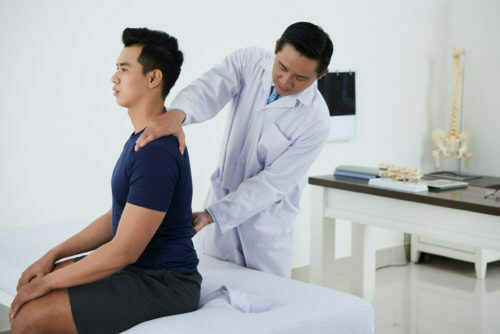According to the World Health Organization, an average of 1.24 million traffic deaths occur every year. While this sobering statistic shouldn’t necessarily keep you off of the roads, it is important to understand what to do if you’re ever in an accident. Most drivers know that immediately following a car accident, it’s important that you stop, ensure the scene doesn’t become more dangerous and call the police.
While you’re waiting on the police to come, you’ll want to check on any other drivers involved in the accident, getting documentation of the accident and trading insurance information. However, what should you do if you get an injury from the accident, particularly one that does begin to show its side effects until a few days following the crash? Read on to learn how to do with orofacial pain following whiplash trauma from a car accident.
What is Orofacial Pain?
Put in its simplest terms, orofacial pain is any pain that you might feel around your mouth, jaw, face, head, or neck. From temporomandibular disorder to migraines, there’s a wide array of facial pain that could be classified as orofacial pain. This pain could even range from trigeminal neuralgia to chronic headaches or even trouble sleeping. In some situations, orofacial pain is treated and diagnosed by both doctors and dentists, depending on the root of the pain.
What Trauma Causes Orofacial Pain?
If you’ve recently been in a car accident, you may have sustained an injury that requires medical attention without even realizing it. Many times, this happens because of trauma to your head, face or neck. This can happen in a car accident if your head hits the steering wheel or headrest to hard, or if you get sudden whiplash.
While you may feel pain or have concussive symptoms immediately following the accident, there are times that the symptoms may not manifest until the next day. In some situations, these sorts of injuries require Orofacial Pain Diagnosis from a professional from a school like Rutgers.
When You Should Speak to a Lawyer
If all of the above sounds like it might involve costly surgery or medical treatment in order to solve, you may be right. Costly medical bills are just one of the repercussions of orofacial pain stemming from a car accident. If your car was damaged in the accident, you may also need to pay for repairs to your car, depending on how your automotive insurance limits different out-of-pocket expenses. All of these costs could be covered by a personal injury settlement, assuming that you can win your court case.
One of the best ways to know whether or not you even have a personal injury case that is winnable is by talking to a lawyer ahead of pressing charges. This lets you talk through your case and how easy it will be to prove fault if you’re actually seen by a judge. Many personal injury attorneys will even offer consultation to clients free of charge so that you can learn the ins and outs of what to expect when filing a personal injury lawsuit. If you’re struggling to find a way to pay for the costs associated with your orofacial treatment or car repairs, it may be worth consulting with a lawyer to see if a personal injury settlement is possible.
Nobody wants to live with orofacial pain, especially following a car accident. If you want to improve your quality of life, there’s a wide range of ways to deal with orofacial pain following a traffic incident. If you need assistance paying for your medical costs, it may be worth consulting with a personal injury lawyer in order to receive a settlement to cover those fees.




